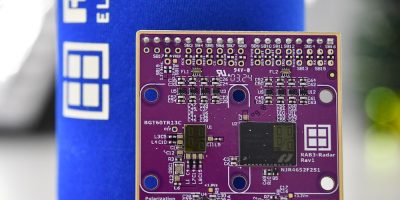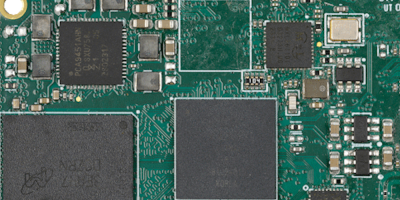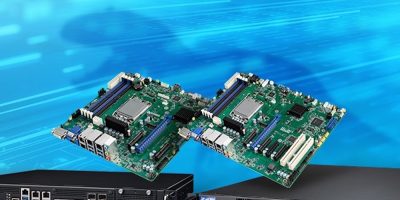Reliable solutions for distance measurement as well as people and surface detection play a key role in IoT applications. With the RAB3, Rutronik System Solutions are expanding their board family with an Adapter Board to test the use of a fully integrated module as well as the possibility of a discrete development. By accelerating the pre-development phase and reducing costs, the RAB3 helps to bring radar-based applications to market faster.
IoT control applications have become a trend and with it the demand for sensing devices to collect information. Here radar sensing is highly robust and stable with respect to external conditions such as temperature changes and ambient light. “Furthermore, radar detects motion, but does not use the actual images, thus providing a real privacy benefit. With our RAB3, you benefit from a development environment to test compact and lower power radar applications,” notes Stephan Menze, Head of Global Innovation Management at Rutronik.
The Nisshinbo 60 GHz Smart Sensor Micro-Module offers a non-contact and highly accurate measurement solution. Radar sensing at 60 GHz is a non-contact and highly accurate measurement solution. This is beneficial for realising applications for distance measurement or people counting with the distance, angle, and state detection sensor using 60 GHz band millimetre wave. With the Infineon XENSIVTM 60 GHz Radar Sensor, a discrete radar IC complements the latest radar technology provided with the RAB3 to work on your application. Thanks to its small form factor and low power consumption, this 60GHz radar sensor comes with one transmitting and three receiving antennas. The L-shaped antenna can be used for array, horizontal, and vertical angular measurement. This enables advanced radar sensing.
Thanks to the Arduino interface, the RAB3 is easy to combine with all other Base Boards and Adapter Boards from Rutronik System Solutions. The modular concept opens up various development approaches that you can implement quickly, cost-effectively, and simply, but in a technically sophisticated way. By combining the RAB3 with the Base Board RDK3, it is possible to implement both detection without privacy issues and also in badly lit and dark surroundings and localized use via Bluetooth Low Energy, which is sufficient for some applications such as people detection and presence detection in factories, conference and exhibitions halls, shopping malls or similar. It is also possible, for example, to connect it to the Text To Speech Adapter Board, which is based on Epson core hardware and software. This second Adapter Board makes it then possible to use the voice output to communicate that a maximum of people are in a room or hall. With the Text To Speech Adapter Board up to twelve languages can be realized as voice output.






